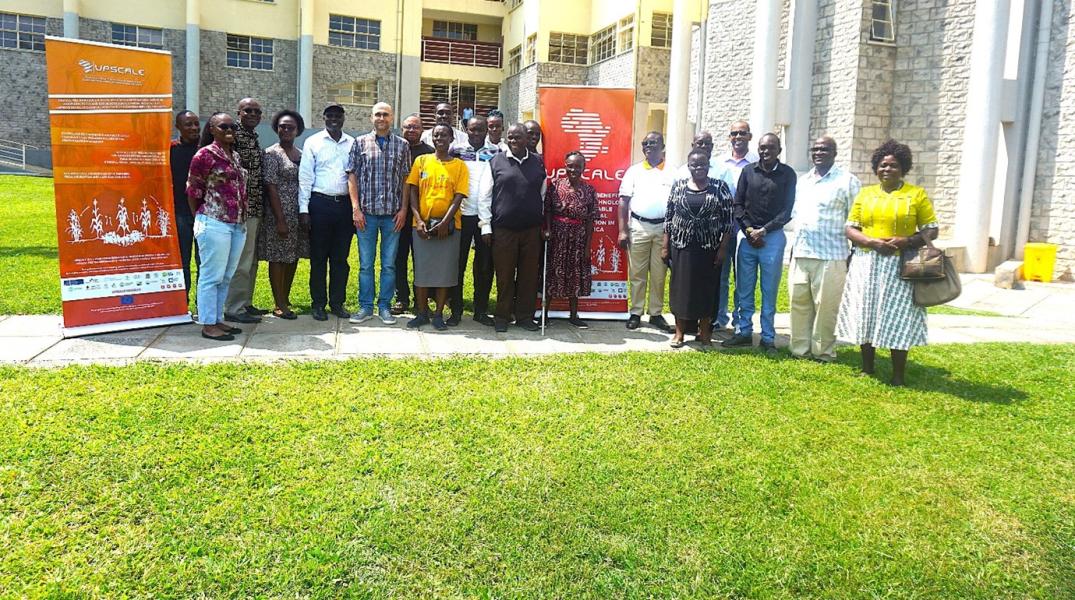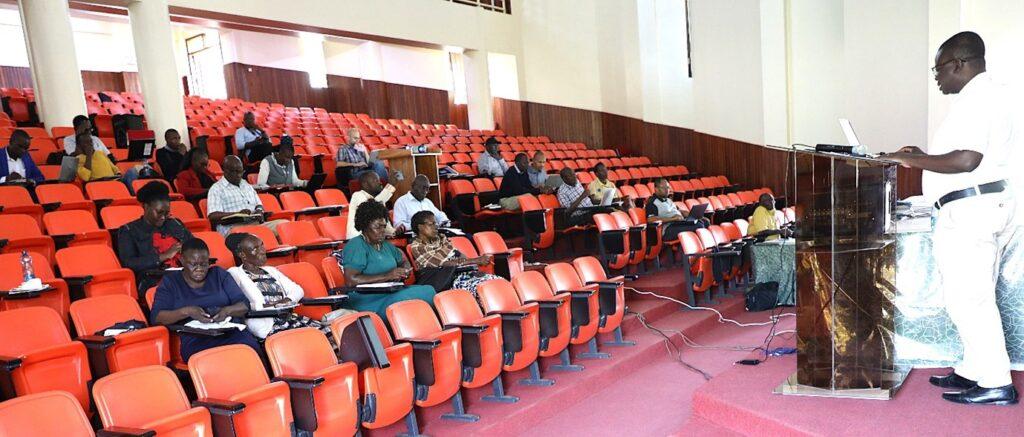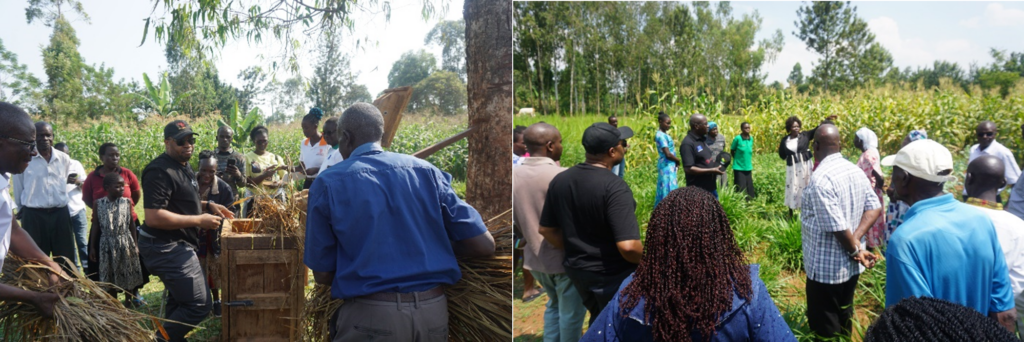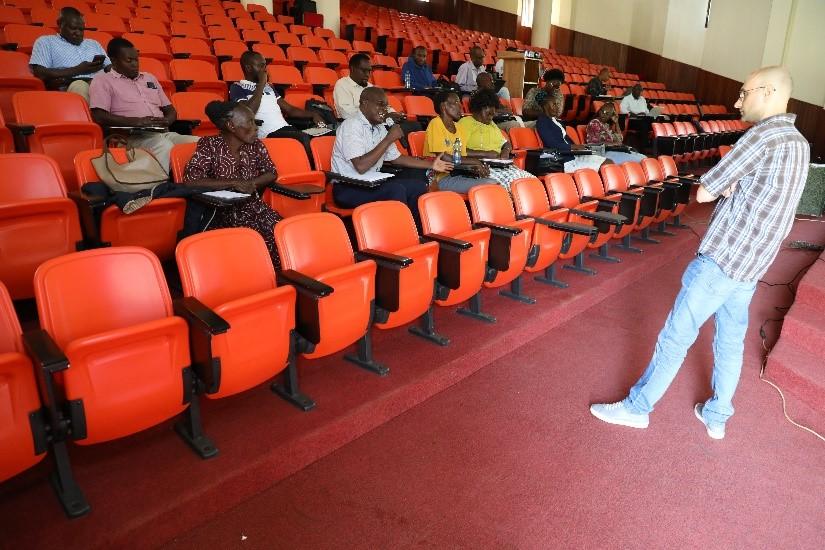The 4th National MAC Meeting in Kenya and Socio-Ecological Model Validation Workshop

The meeting was held at Maseno University in Kisumu, Kenya. It was a three-day event focused on advancing sustainable agricultural intensification in East Africa. The agenda of the meeting was to review the progress and receive feedback on the implementation of project activities under the Kenya Multi-actor Community of Practice.
The workshop was officially opened with words of welcome by Prof. Odhiambo from Maseno University and Dr. Tamiru from the International Centre of Insect Physiology and Ecology (icipe), the Kenya National co-ordinators for the UPSCALE project. They established the spirit of the entire workshop, stressing the effectiveness of the event which is indeed essential for the project’s goal.

Socio-Ecological Model Validation
The first day was dedicated to validating five socio-ecological models – the qualitative, economic, social, landscape agronomic and landscape economic extension models. Discussions on the models’ accuracy and relevance were facilitated by Dr Adewole Olagoke (JLU) and Dr Nikos Alexandridis (ULUND). Participants of the discussions and later on exercise were MAC-Kenya members, project stakeholders and farmers
The exercise involved a review of interactions of variables to assess whether they have positive or negative effects or relationships within the model.
As far as the resumed discussion concerning agricultural intensification, some participants held studies and practical experiences optimal to choose from. Besides, the position of push-pull technology as an approach towards ecological intensification received more support which calls for sustainable farming. This method helps in increasing the crop output while at the same time improving the soil structure and other living organisms and decreasing the application of chemical fertilizers.
Multi-Actor Communities of Practice MAC Meeting
The second day was dedicated to the MAC meeting which gathers all its members and other interested parties that discourse on the structures, the sustainability as well as development plans and achievements of the UPSCALE project. Kisumu County’s Agriculture Extension Officer, Mary Ongadi, and Prof. George Odhiambo spoke of the need to assist farmers in securing cheap Desmodium seeds, an ingredient in push-pull innovation.
Jimmy Pittchar presented the topic “Thought Leadership: MAC Structures and Plans for Sustainability” on behalf of the UPSCALE Project coordinator, Prof. Dr. Emily Poppenborg. He paid much attention to the post-project sustainability and provided several suggestions such as:
- The members should enhance people’s awareness about the push-pull technology;
- The push-pull technology should be incorporated into the national and county agricultural systems.
Key recommendations included:
- Step up promotion events and other ways of touching the stakeholders.
- Improving sources of farmer information exchange by setting up learning sites, and conducting farmers’ training and field days.
- Synchronization with the policymakers and the financial institutions in order to encourage the push-pull technological adoption.
Dr. Fred Aila convened a meeting on how to improve the effectiveness of technology transfer in involving the stakeholders. There is a necessity for representatives from all sectors in the MAC, including policymaking, financiers, and young people. A farmer representative Paskalia Shikuku recanted how push-pull activities have created income and sustainability amongst the young people in her community.


